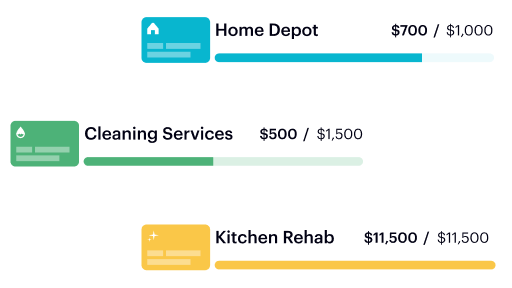Property management costs vary widely based on the property’s size, type, location, and condition. As of 2023, property management companies typically charge a monthly fee of 8%–12% of the monthly rent (often over 10% for smaller properties).
Let’s further break down the cost of property management to ensure you get a fair deal in 2023!
Author’s Take
David Lindhall recommends being a real estate investor, not a landlord. When I read his books, that was the main thing I remembered, but I didn’t apply it initially. I wanted to learn the business, so my partner and I self-managed our properties for 2 years. Let me tell you, that was rough! I’m happy we hired a property manager, but I forgot David Lindhall’s second message on this topic – you must manage the property manager closely. And that is what I wanted to emphasize with you as well. Hire someone that fits well with your business and manage them closely, like you would a team member that you manage at work. Remember, a good property manager is local to your area, knows the community, has an extensive network of handymen and professionals who can handle repairs, has excellent communication, and is super organized.
Types of Property Management Fee Agreements
Most property managers will ask you for a monthly fee to take care of your property. Here are the two main ways they might bill you:
Percentage of Monthly Rent
Most property managers take a chunk of the rent you collect each month. This amount is usually between 8% and 12%. So, if you rent out a house for $1,500 a month, and the property manager charges a 10% fee, you’ll pay them $150.
But what if the house is empty? Some property managers still charge a fee of around $100/month because an empty house means more work for them. They need to check the property regularly to make sure everything’s okay.
Note: Work with property managers who get paid on collected rent. If there’s no rental income, you won’t have to pay. It ensures that the property manager is motivated to find a tenant quickly.
Fixed Property Management Fee
Some property managers charge a monthly fixed fee instead of a rent percentage. This amount can depend on the property type, location, and size.
For instance, a regular-sized family home might cost $100 monthly for property management. But this can change depending on which state your property is in.
Note: With fixed charges, the property manager gets the same amount whether your rent is high or low. This means they might not work as hard to bring you the best rent price.
How Do Property Management Fees Work?
Here’s a breakdown of the common property management services fees and what they entail:
Contract Setup Fee
When you first hire a property management company, many will charge a one-time setup fee. This typically hovers around $300 to $500. This fee helps cover the costs of:
- Setting up your account for accounting purposes
- Possibly opening a bank account in your name
- Assisting with necessary business or tax licenses
- An initial property inspections
- Coordinating transitions if you’ve recently acquired a turnkey rental property
- Introductory materials for tenants
- Assisting in applying for required tax or business licenses
Monthly Management Fee
As discussed earlier, this fee is either a percentage of the monthly rent or a fixed amount, depending on your property management agreement.
The property management will include the following services:
- Rent Collection
- Tenant Communications
- Regular Property Inspections
- Maintenance Coordination
- Financial Reporting
- Emergency Response
- Lease Administration
- Utility coordination
Property managers may also ask for a percentage of late rent payments (typically from 25% to 50%).
Repairs and Maintenance Fee
Property management companies will often (but not always) charge a 5-15% markup on all maintenance costs for the property. So, for example, if a plumbing problem costs $500, it will be forwarded to you at $550 with a 10% markup.
Some property management companies have trusted vendors or in-house teams. These teams usually offer preferred pricing, ensuring repair costs are lower than what an individual might get.
Advertising and Marketing Fee
If a property is vacant, it needs to be advertised. While there are free listing websites like Zillow and Rentberry, you still need local representation.
Some property management companies charge a one-time fee for advertising (typically $100 to $200), while others include it in the leasing fee.
Leasing Fee
Property managers often charge a leasing fee, also called a “tenant placement fee,” to fill a vacant property. This can be equivalent to half to a full month’s rent. This fee covers showing the property, screening potential tenants, and setting up the lease.
Lease Renewal Fee
When a tenant’s lease is up, there might be a renewal fee. This fee should be smaller than the initial leasing fee, especially if the renewal process is smooth and doesn’t require extensive negotiations.
Some rental property managers charge a flat rate, i.e., $150 – $350 for lease renewal.
Eviction Fee
No one likes evictions, but they sometimes happen. If a property manager handles an eviction, expect to pay around $500 plus legal costs. If a judgment is awarded in court, collections agencies and attorneys typically charge about 50% of the collected amount.
Another layer of complexity arises when the eviction involves squatters. This makes the eviction process more complicated and often costlier.
Vacancy Fee
Managing a vacant property requires more attention due to potential issues like unexpected leaks or security concerns. Regular weekly visits to the property are needed to minimize risks at $50 – $100 per month.
Some firms charge an upfront fee equal to a month’s rent if you engage them while the property is vacant.
Early Termination Fee
If you end your property management contract with the property management company earlier than agreed, you might incur an early termination fee. This fee varies but could range from a month’s worth of lost income for the company to more severe penalties for breach of contract.
Rent Due vs. Rent Collected
When hiring a property manager, there’s a big difference between “rent due” and “rent collected”. Here’s what you need to know:
- Rent Collected: You pay the manager only when they collect rent from your tenants. No rent collected means no fee for them. This is good for you because the manager will work hard to ensure tenants pay on time.
- Rent Due: Even if the tenant doesn’t pay, you still owe the manager their fee. This can be costly if tenants miss rent.
Choosing a “rent collected” model is usually better for property owners. It ensures you and your manager are on the same team, wanting the rent paid on time. Always check your contract and pick the best option for you.
Factors Affecting Property Management Cost
When figuring out how much you might pay for property management, several things can change the final cost. Here’s a simple breakdown:
Type of Property
Different properties have different needs:
- Due to the number of tenants, multi-family properties require more attention than single-family homes.
- Commercial properties cost more to manage than residential properties.
- Even without tenants, vacant properties need care and can have separate fees.
Property Size
Larger properties with more square footage or rooms can be more work to manage. If your property has more units or a big yard, it might need more attention, which could mean higher fees.
Property Location
If your property is in a state with high rents (e.g., Los Angeles, New York, etc.), the fees might be higher, too.
Property management costs also differ based on city and suburb properties. A city property might have unique challenges, like limited parking or strict building rules, which can change fees.
Condition of Property
Newer properties, or those that have been recently fixed up, usually have fewer problems. This means they cost less to manage.
Real Estate Market
The overall housing market in your area can also affect property management costs. If there are many property managers available, they might offer competitive prices.
But the general state of the real estate market can also play a role. If it’s a busy time for rentals, fees could be different than during slower times.
Is Hiring a Property Management Company Worth It?
Here’s a breakdown of factors to consider when deciding whether to manage on your own or hire a property management company:
Cost vs. Convenience
Hiring a property management company does come with its costs. While property managers can handle many of your tasks, comparing their fees with the potential time, energy, and resources you’d spend managing the property yourself is essential.
Property management software can be a cost-effective alternative, offering many tools that make managing properties more efficient and easy.
Proximity to Rental Property
If you live near your rental, handling maintenance and tenant meetings is easier. But traveling can take up much time if your property is far away or you own multiple units spread out. A property management company can be a big help, especially if you’re away.
Tenant Relations
Bad tenants can be a real headache for landlords. They might be late with rent and cause disruptions to your rental business.
Many landlords opt to collect rent with property management software to tackle this. Instead of waiting and hoping they’ll pay, rental property owners can send reminders and let tenants pay online.
Time and Availability
Being a landlord is like having a second job. There’s always something that needs attention. If you’ve got the time and enjoy hands-on work, self-management might be right for you. But a property management company can handle the daily tasks if you’re stretched thin.
Final Thoughts
Hiring a property management company can help, especially if you have properties in different places or own many of them. These companies charge fees, but they handle many tough jobs for you, like repairs and finding tenants.
But what if you only have a few properties or like being hands-on? Well, there’s a middle ground. Property management software like Baselane can help landlords manage their properties more easily. With Baselane, you can:
- Collect online rent payments.
- Simplify bookkeeping and categorization.
- Track cash flow and generate financial reports.
Want to see how Baselane can help you? Click here to book a demo and check it out!






